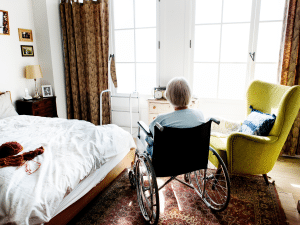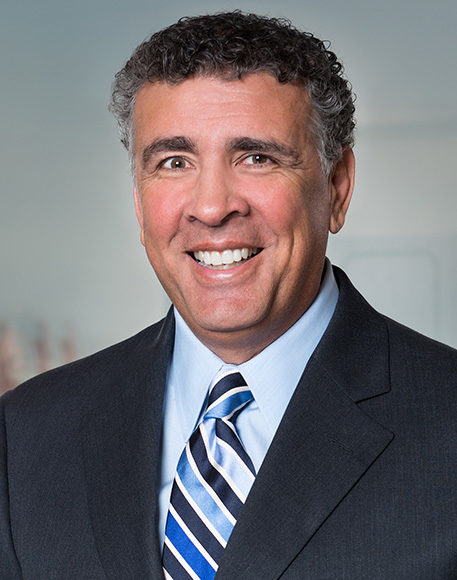How to Spot Early Signs of Nursing Home Neglect Before It’s Too Late
 For many people, the decision to place a loved one in a nursing home is the toughest choice they’ll ever make. Many debate whether or not to even put their loved one in an assisted living facility, only to realize that it’s likely the best (or only) option for them. You put time and effort into tours, reading reviews, and gathering information—and you trust the facility you choose to take care of your loved one.
For many people, the decision to place a loved one in a nursing home is the toughest choice they’ll ever make. Many debate whether or not to even put their loved one in an assisted living facility, only to realize that it’s likely the best (or only) option for them. You put time and effort into tours, reading reviews, and gathering information—and you trust the facility you choose to take care of your loved one.
When neglect starts, it can be hard to spot—especially if you trust the facility. But over time, small coincidences and inexplicable issues add up. The longer you wait to take action when someone is suffering from nursing home neglect, the more likely they are to suffer serious or fatal injuries as a result of their neglect. It is essential to document thoroughly and take action early. Looking for more assistance with your nursing home neglect case? Call Garcia & Coman to schedule a consultation.
Red flag #1: Poor personal hygiene
Patients at nursing homes often require significant assistance with personal hygiene—even those who maintain some level of independence may need reminding or supervision. If an individual’s personal hygiene suddenly starts to decline, that’s something to look further into. Warning signs include:
- Body odor
- Unbrushed hair and teeth
- Dirty clothes
- Soiled sheets or disposable briefs
- Untrimmed fingernails and toenails
These unmet needs aren’t a matter of aesthetics. They put residents’ health and safety in danger. Unmet hygiene needs can lead to urinary tract infections, skin breakdown, gum disease, and injuries from unintentional scratching. Furthermore, this lack of care is bad for a resident’s mental health—they deserve to feel clean, tidy, and presentable.
Red flag #2: Signs of dehydration or malnutrition
It is incredibly easy for elderly people or those with significant disabilities to become malnourished or dehydrated. Most residents rely on staff members to prepare meals, bring water on a regular basis, and monitor their intake so they can take action if their intake drops. Potential signs of dehydration and malnutrition include cracked lips, dry mouth, obvious weight loss, dizziness, fatigue, and changes in bathroom habits.
Part of aging is simply not responding to or feeling thirst the same way that younger people do. That’s why many nursing home residents rely on staff members to remind them to drink water and stay hydrated. When staff members aren’t paying attention or providing proper care, it’s easy for these tasks to fall by the wayside.
Red flag #3: Bedsores/pressure ulcers
An elderly person’s skin is likely to be extremely thin and sensitive. When you add that to their limited mobility, you have the ideal conditions for bedsores. Bedsores, also known as pressure ulcers, happen when a resident is not repositioned frequently enough to avoid excessive pressure on one part of the body. Parts of the body especially prone to pressure ulcers include the bottom, back, heels, and shoulders—anywhere that is likely to touch a surface when resting may experience pressure ulcers. Nursing homes typically require repositioning every set number of hours to prevent bedsores, and when those routines are ignored or skipped, bedsores happen. As a concerned friend or family member, you should look for red, irritated skin, particularly on the areas noted above. Watch out for open wounds and sores, complaints of pain, and bandages that don’t appear to treat any reported injury. Pressure ulcers are often preventable, and they’re often the first major sign that someone in a nursing home is being neglected.
Red flag #4: Emotional or behavioral changes
Neglect has an obvious negative impact on a resident’s physical health, but it can also have a significant effect on their mental health. These are people who likely spent the rest of their adult lives caring for themselves and meeting their own needs—and now they’re dependent on those who are ignoring their needs. They may feel dirty, physically uncomfortable, in pain, or hungry. Watch for these warning signs:
- Sadness, anxiety, and depression
- Hesitation or fear when staff members are near
- Sudden disinterest or apathy toward activities they once enjoyed
- Difficulty speaking freely around caregivers
It’s important to note that some behavioral and mood changes are linked to dementia and other medical conditions. However, when this happens, the other signs of neglect won’t be present. It’s important to advocate for your loved one to figure out what is causing the change in their behavior and mood.
Red flag #5: Untreated medical needs or delayed medical attention
When a nursing home resident is neglected, their medical needs are often ignored. Some delays in medical care can’t be helped; certain specialists have months-long waiting lists, and some care is only available in cities hundreds of miles away. But when a facility does not attempt to get a resident the care they need and does not communicate delays to their loved ones, those are huge red flags. Untreated wounds, recurring infections, unexplained injuries, and missed follow-up appointments can all indicate that a loved one’s medical needs are being ignored.
Taking preventative action
The sooner you notice that your loved one is not getting the care they need, the more power you have to keep their situation from worsening—both with the help of the facility itself and with the assistance of a nursing home neglect lawyer. You can help them by documenting your concerns, reporting your observations to the facility and requesting follow-up action, and working with other family members to ensure that your reports are not ignored.
Find out how we can help—you don’t have to do this alone
If your concerns are ignored or swept under the rug, you still have options. At Garcia & Coman, we fight to preserve nursing home residents’ rights, physical and mental well-being, and dignity. Call us today or contact us online to set up a free case review.

Stephen M. Garcia represents victims of elder and nursing home abuse and is known as one of the leading civil litigators in the country. He is Senior Partner at Garcia & Coman, where the firm’s practice is focused on elder abuse, nursing home abuse, and wrongful death of the elderly.
Find out more about Stephen M. Garcia

